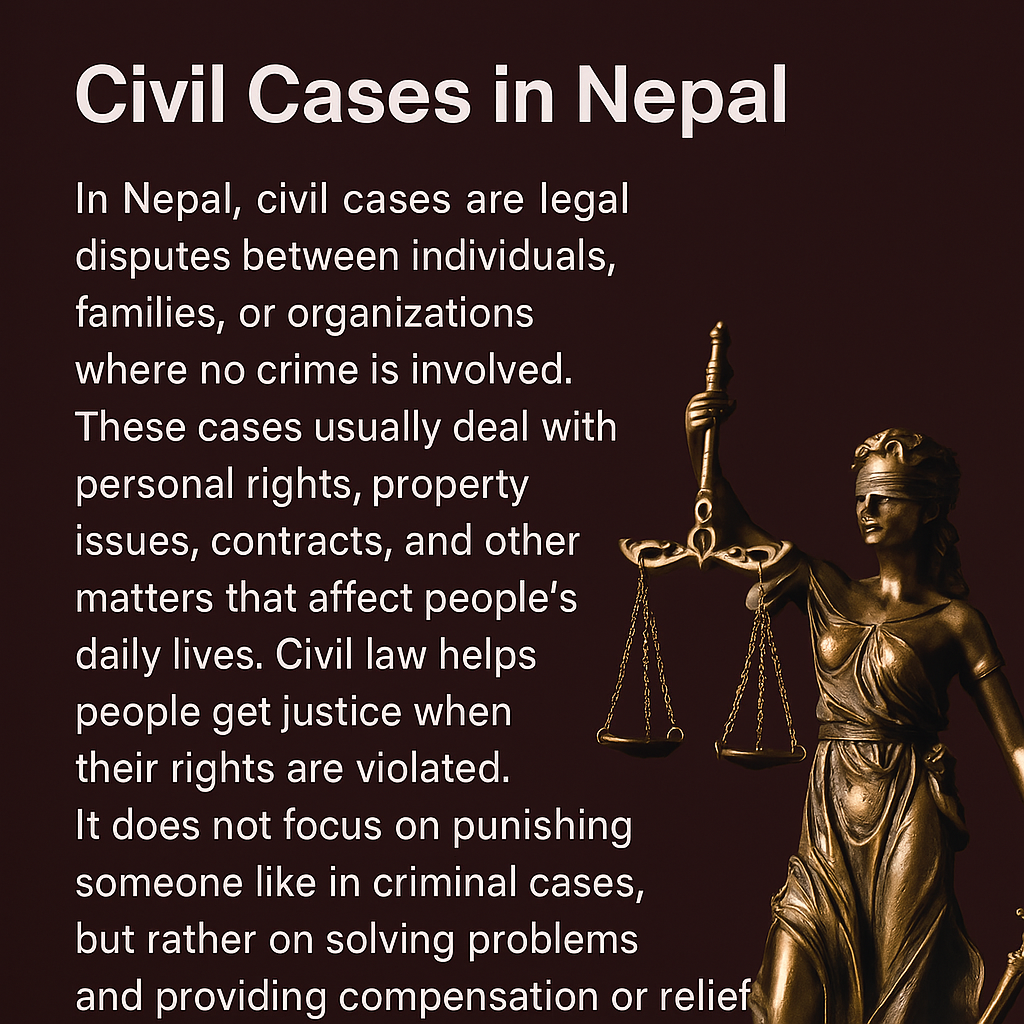
In Nepal, jurisdiction means the legal power or authority of a court to hear and decide a case. Every civil case must be filed in the correct court, based on where the dispute happened, what the dispute is about, and which court has the power to decide it. If a case is filed in the wrong court, the court can reject it, and justice can be delayed or denied.
There are several types of jurisdiction in civil cases, and all of them are equally important for ensuring fair and proper justice.
The first is territorial jurisdiction, which refers to geography or location. For example, if there is a land dispute in Pokhara, the case must be filed in the District Court of Kaski, not in Kathmandu or another district. The law says that the case should go to the court nearest to where the issue took place or where the defendant lives.
The second type is subject-matter jurisdiction. This deals with the type of case. District Courts usually handle common civil disputes like property division, contracts, divorce, or compensation. However, some special cases may fall under the High Court or Supreme Court, depending on the seriousness and legal complexity. For example, a case about fundamental rights may go directly to the Supreme Court under Article 133 of the Constitution.
Another type is pecuniary jurisdiction, which is based on the monetary value of the claim. Some civil cases are handled differently depending on how much money or property is involved. The Civil Procedure Code, 2074 gives courts guidelines on which court can hear cases of different financial amounts. For instance, small claims may go to local judicial committees or smaller benches, while high-value property or business disputes go to District or High Courts.
There is also hierarchical jurisdiction, which depends on the level of the court. Nepal’s court system includes District Courts, High Courts, and the Supreme Court. Each has its own level of authority. Normally, a civil case begins in the District Court, and if someone is not satisfied with the decision, they can file an appeal to the High Court and then, in special conditions, to the Supreme Court.
In some cases, original jurisdiction applies. This means a court hears the case for the first time. For example, District Courts have original jurisdiction in most civil matters. On the other hand, appellate jurisdiction means a higher court reviews the decision of a lower court when an appeal is made. The High Court and Supreme Court usually exercise appellate powers.
There is also extraordinary jurisdiction, especially with the Supreme Court, which can hear cases related to constitutional interpretation or violation of fundamental rights even if they have not passed through lower courts. This is granted under Article 133 of the Constitution of Nepal.
Understanding jurisdiction is very important in civil law. It ensures that the case is filed in the correct court, in the correct place, and under the correct law. It prevents legal confusion, saves time, and makes sure justice is delivered properly.
For example, if two people in Lalitpur are arguing over business profits, they should go to the Lalitpur District Court. But if someone is denied their right to equality by a new law, they may directly go to the Supreme Court using its extraordinary constitutional jurisdiction.
In short, jurisdiction acts as the base of a civil case. Without proper jurisdiction, even a strong case may be rejected. So, every person should know where and how to file a civil case to use the legal system effectively and receive timely justice.
